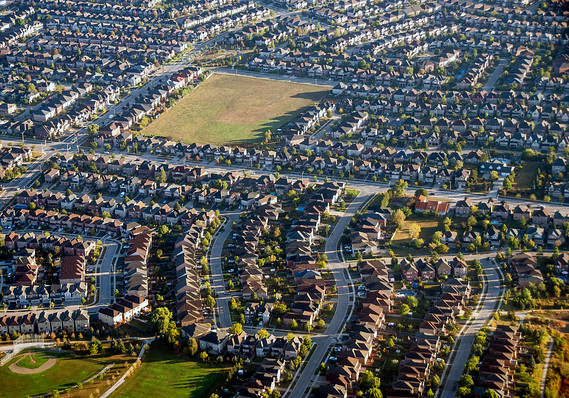 Bloomberg News/Landov
Bloomberg News/Landov
More homes are being bought by investors, and their purchases are concentrated among starter homes, making it even harder for first-time buyers to break in to the housing market, according to a new analysis.
Investors commanded 11.3% of all purchases in 2018, according to CoreLogic, a real estate data company responsible for the report. That’s the highest level since 1999, and even dwarfs activity between 2012 and 2014, when the housing market was still mired in distress and big financial institutions with deep pockets swooped in.
Read: Four years, $13 million and dozens of hands: How ‘affordable housing’ gets made in America
For starter homes, investors account for one in five transactions, CoreLogic said.
What’s notable about recent activity is that smaller investors, not big financial institutions, are driving the uptick. Large investors’ share has declined from 24.3% in 2013, the aftermath of the crisis, to 15.8% last year.
Investors who purchased 10 or fewer homes were responsible for 60% of transactions in 2018, up from 48% in 2013. And those mom-and-pop investors are buying entry-level homes: 20.3% of them in 2017 and 2018.
Perhaps because lower-priced homes are more plentiful in metro areas that are seeing cooler growth, the housing markets with the greatest share of investor activity aren’t high-flyers. Detroit, Philadelphia, and Oklahoma City are among the top five communities with greatest investor activity. (Memphis, which has for some time been known as a hotbed of activity for the single-family-rental boom, is as well.)
In markets where investors have a stronger presence, there’s less housing inventory. But CoreLogic cautions against blaming them for the housing shortage. “While it’s certainly possible that an increase in investors into a market increases competition and lowers supply relative to aggregate demand, the opposite is also possible: markets with tightening supply could draw investors as they perceive markets with a dwindling supply to be safer bets than those with a more plentiful supply,” the group wrote.
Read: The eviction crisis is starting to look a lot like the subprime mortgage crisis







